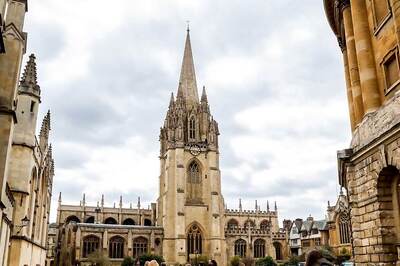
views
London: Internet service providers should do more to prevent the web from playing a role in promoting violent extremism, British lawmakers said in a report published on Monday.
The Internet has become an important factor in nurturing the extremist threat, surpassing universities and prisons as a place where dangerous ideas are developed and traded, the lawmakers said.
"We remain concerned by the growing support for nonviolent extremism and more extreme and violent forms of far-right ideology," the Home Affairs Committee said in its report, which follows a nine-month inquiry.
Britain has been involved in a number of terror plots. On July 7, 2005, four suicide bombers killed 52 people in synchronised attacks on London's transit system. A year later, US and British intelligence officials thwarted one of the largest plots yet — a plan to explode bombs on nearly a dozen trans-Atlantic airliners. Last week, four British men fuelled by the words of a US-born Muslim cleric pleaded guilty to involvement in an al-Qaida inspired plot to bomb the London Stock Exchange at Christmastime.
The Home Affairs Committee said the Internet "was now one of the few unregulated spaces where radicalization is able to take place" and played a greater role in promoting violence than prisons, universities or places of worship — a pointed rebuke to other government officials who had identified those areas as high risk.
"More resources need to be directed to these threats and to preventing radicalisation through the Internet and in private spaces," said Keith Vaz, chairman of the committee. "These are the fertile breeding grounds for terrorism."
Lawmakers urged Internet service providers to be more active in monitoring the sites they host and work with the government on developing a code of practice to remove any material that promotes violence extremism.
But civil liberties campaigners slammed the suggestion, saying courts - not "unaccountable officials" - should decide when to block online content.
"The level of monitoring required to police such a scheme would mean a significant invasion of every internet user's privacy," said Nick Pickles, director of privacy group Big Brother Watch. "There is a serious risk that this kind of censorship not only makes the Internet less secure for law-abiding people, but drives underground the real threats and makes it harder to protect the public."
The committee directly challenged the view expressed last year by Home Secretary Theresa May, who said that universities and prisons are among the most vulnerable areas. May accused universities of complacency in tackling Islamic extremism on campus, saying educators had not been taking the issue seriously.
The new report says "there is seldom concrete evidence" linking the development of extremist views to universities.
It also warns of a threat from the far right - which it said consists mostly of "solitary, disaffected individuals" - rather than organised terrorist units — and called for better information-sharing between prison bosses, the police and the UK Border Agency following the release of prisoners who have been convicted of terror offenses.
Britain's Home Office said it would consider the committee's findings.
"We are working closely with the police and Internet service providers to take Internet hate off the web," it said in a statement.




















Comments
0 comment